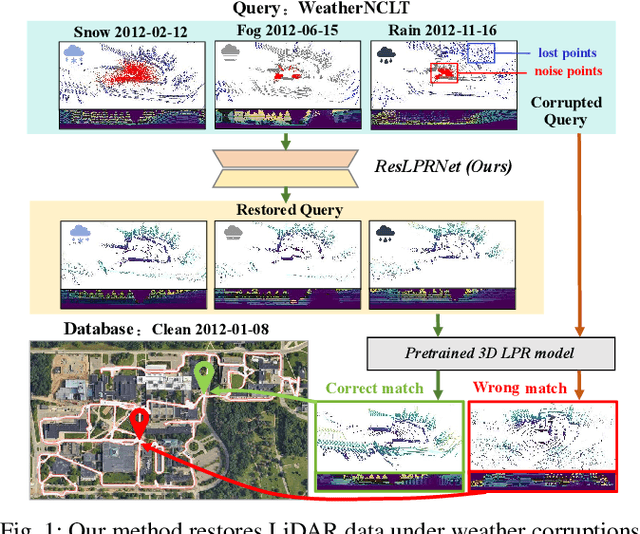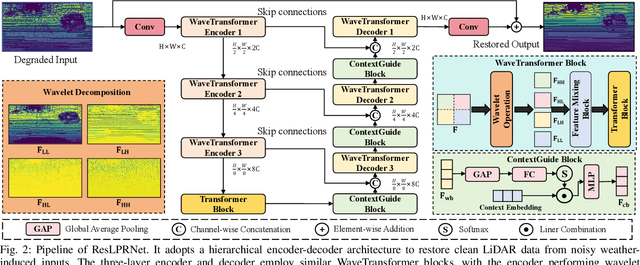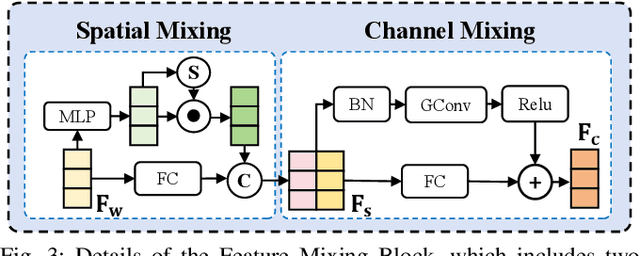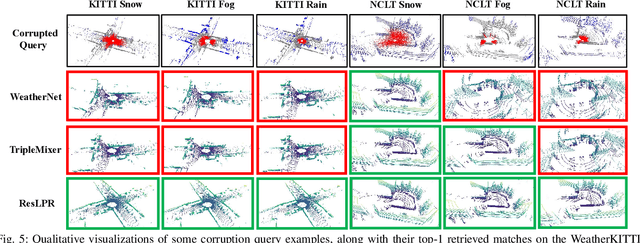Wenqing Kuang
National University of Defense Technology
ResLPR: A LiDAR Data Restoration Network and Benchmark for Robust Place Recognition Against Weather Corruptions
Mar 16, 2025



Abstract:LiDAR-based place recognition (LPR) is a key component for autonomous driving, and its resilience to environmental corruption is critical for safety in high-stakes applications. While state-of-the-art (SOTA) LPR methods perform well in clean weather, they still struggle with weather-induced corruption commonly encountered in driving scenarios. To tackle this, we propose ResLPRNet, a novel LiDAR data restoration network that largely enhances LPR performance under adverse weather by restoring corrupted LiDAR scans using a wavelet transform-based network. ResLPRNet is efficient, lightweight and can be integrated plug-and-play with pretrained LPR models without substantial additional computational cost. Given the lack of LPR datasets under adverse weather, we introduce ResLPR, a novel benchmark that examines SOTA LPR methods under a wide range of LiDAR distortions induced by severe snow, fog, and rain conditions. Experiments on our proposed WeatherKITTI and WeatherNCLT datasets demonstrate the resilience and notable gains achieved by using our restoration method with multiple LPR approaches in challenging weather scenarios. Our code and benchmark are publicly available here: https://github.com/nubot-nudt/ResLPR.
 Add to Chrome
Add to Chrome Add to Firefox
Add to Firefox Add to Edge
Add to Edge